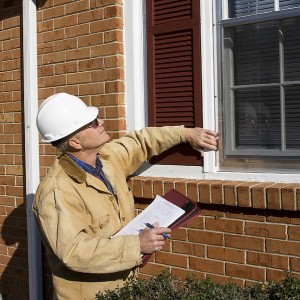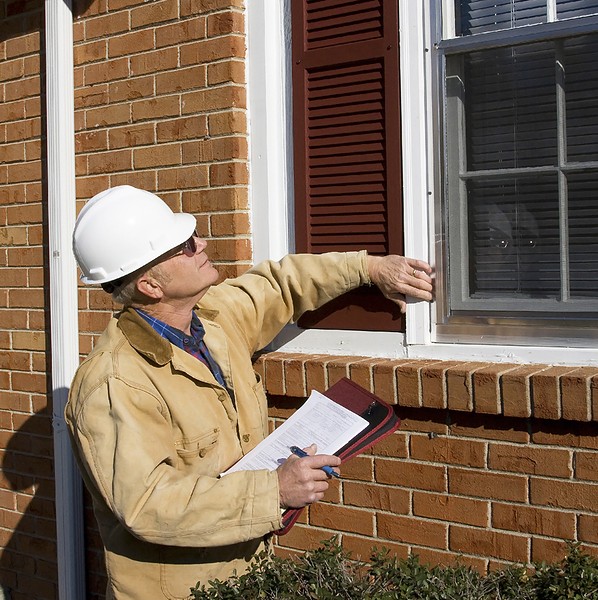 Each year consumers pay more for their auto and homeowners insurance policies as a direct result of fraud. Unnecessary auto glass repairs, exorbitant towing charges, needless home repairs, total roof replacements, sinkhole damage, solicitation of accident victims — these and other kinds of insurance scams contribute to an annual loss amount estimated to be $30 billion just within the property/casualty industry.
Each year consumers pay more for their auto and homeowners insurance policies as a direct result of fraud. Unnecessary auto glass repairs, exorbitant towing charges, needless home repairs, total roof replacements, sinkhole damage, solicitation of accident victims — these and other kinds of insurance scams contribute to an annual loss amount estimated to be $30 billion just within the property/casualty industry.
According to the industry’s National Insurance Crime Bureau, repair scams have one common element—a solicitation from an individual offering repair services. If a homeowner has requested an inspection or if an insurance company has authorized a vendor to conduct an inspection, that’s one thing. But an unsolicited, unexpected and random “inspection” visit from a service provider, whether it’s a glass repair technician, a roofer, or a structural engineer looking for sinkhole damage to your home could be the first step in a fraud scam.
That is why NICB advises consumers to always consult their insurance company or agent first before allowing anyone to perform any inspection or repair work that will be “covered” by their insurance.
NICB says that an unsolicited contact is a key indicator of possible fraud. Someone knocking on doors for a roof inspection; a glass repair technician offering “free” repair work; a contractor offering an unsolicited estimate for replacing storm-damaged siding—all of these are potentially fraud precursors.
NICB tells consumers, “If you didn’t request it—reject it.”
NICB cites other scenarios where consumers should be on the alert.
In auto accident solicitations, the innocent people involved in the accident often receive a phone call from a representative of the attorney or medical provider encouraging them to seek representation or treatment to get the care and money they deserve. In some instances, the caller may falsely represent themselves as being from the person’s insurance company. In other situations the innocent people involved in the accident can even be approached at the scene.
Not everyone who makes unsolicited contacts with homeowners or people involved in an auto accident is looking to rip someone off. But NICB says “it is an unfortunate sign of the times that when we find examples of repair or auto accident solicitation scams, they began with an unsolicited visit or contact.”
When considering home repairs, NICB recommends that consumers consider these tips before hiring a contractor:
- Contact their insurance provider first
- Get more than one estimate
- Get everything in writing. Cost, work to be done, time schedules, guarantees, payment schedules and other expectations should be detailed
- Demand references and check them out
- Ask to see the salesperson’s driver’s license and write down the license number and their vehicle’s license plate number
- Never sign a contract with blanks; unacceptable terms can be added later
- Never pay a contractor in full or sign a completion certificate until the work is finished and ensure reconstruction is up to current code
- Make sure they review and understand all documents sent to their insurance provider
- Never let a contractor pressure them into hiring them
- Never let a contractor interpret the insurance policy language
- Never let a contractor discourage them from contacting their insurance provider
NICB recommends that consumers involved in an auto accident work with their insurance provider and, if they do need legal representation or medical care, that they don’t select an attorney or medical provider based on the advice of a person unknown to them.
Anyone with information concerning vehicle theft and insurance fraud can report it anonymously by calling toll-free 1-800-TEL-NICB (1-800-835-6422), texting keyword “fraud” to TIP411 (847411) or by visiting the NICB web site at www.nicb.org.
The NICB is supported by nearly 1,100 property/casualty insurance companies and self-insured organizations.
Topics Auto Fraud Contractors
Was this article valuable?
Here are more articles you may enjoy.



 Trump’s Repeal of Climate Rule Opens a ‘New Front’ for Litigation
Trump’s Repeal of Climate Rule Opens a ‘New Front’ for Litigation  Insurance Issue Leaves Some Players Off World Baseball Classic Rosters
Insurance Issue Leaves Some Players Off World Baseball Classic Rosters  Q4 Global Commercial Insurance Rates Drop 4%, in 6th Quarterly Decline: Marsh
Q4 Global Commercial Insurance Rates Drop 4%, in 6th Quarterly Decline: Marsh  Insurance Broker Stocks Sink as AI App Sparks Disruption Fears
Insurance Broker Stocks Sink as AI App Sparks Disruption Fears 

